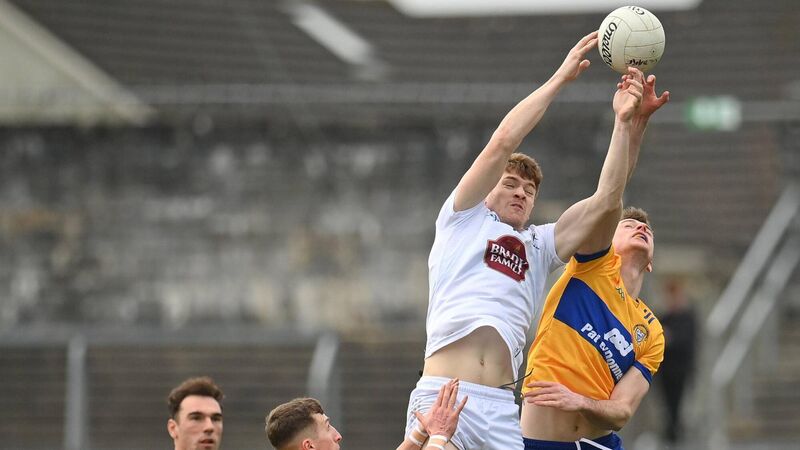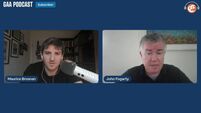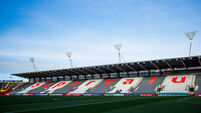Getting Kildare back on top the driving force for Kevin Feely

19 February 2023; Kevin Feely of Kildare in action against Darragh Bohannon of Clare during the Allianz Football League Division Two match between Clare and Kildare at Cusack Park in Ennis, Clare. Photo by Seb Daly/Sportsfile
Kevin Feely is head of sales and one of the team is not performing. The time has come for a meeting. There will be no bonus this month. Buck up. The Kildare footballer in one corner, an argumentative employee in the other.
“A brutal yoke,” says Feely with a shake of the head. The exercise is part of the Jim Madden GPA Leadership Programme. The employee is an actor. Over the course of a year a group of intercounty players learn about different leadership styles, how to get the best out of people, a competency-based interview, improving decision making and conflict resolution.









